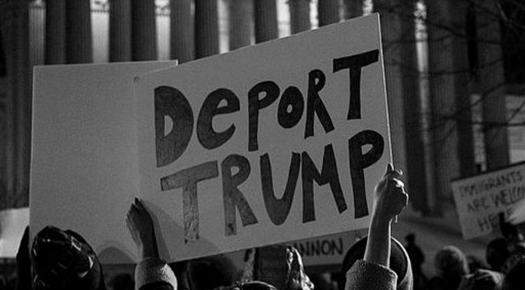
Executive Order 13769, titled “Protecting the Nation from Foreign Terrorist Entry into the United States”, commonly known as the Muslim ban or the travel ban, was an executive order issued by United States President Donald Trump. Except for the extent to which it was blocked by various courts, it was in effect from 27 January 2017, until 16 March 2017, when it was superseded by Executive Order 13780.
United States President Donald Trump’s travel ban issued on March 6, 2017, placed limits on travel to the U.S. from certain countries, and by all refugees who do not possess either a visa or valid travel documents. According to its terms on March 16, 2017, this executive order revoked and replaced Executive Order 13769 issued January 27, 2017.
Trump has called the new order a "watered down, politically correct version" of the prior executive order. The third version of the ban that Trump has issued since taking office in January 2017 restricts travel from Chad, Iran, Libya, North Korea, Somalia, Syria, Venezuela, and Yemen. Chad, North Korea, and Venezuela were new to the travel restrictions list, while Sudan was removed. Trump defended the ban as a legitimate measure for protection of national security.
A federal appeals court ruled that the travel ban is unconstitutional because it discriminates against people based on their religion. In a 9-4 vote, the fourth US circuit court of appeals in Richmond, Virginia, said it examined statements made by Trump and his administration officials, as well as the ban itself, and concluded that it was “tainted with animus toward Islam”. The court, among else, took note of the fact that Trump promised "a total and complete shutdown of Muslims entering the United States" as a candidate.
“On a fundamental level, the proclamation second-guesses our nation’s dedication to religious freedom and tolerance,” the chief justice, Roger Gregory, wrote for the court in the majority opinion.
Judge Paul Niemeyer said, in the main dissenting opinion, that the courts should be deferential to the president on matters of national security. Niemeyer criticized the majority, saying his colleagues applied "a novel legal rule that provides for the use of campaign-trail statements to recast later official acts of the president."
The court upheld a ruling by a federal judge in Maryland who issued an injunction barring enforcement of the ban against people who have bona fide links inside the United States, such as documented business purposes or close family relationships.
"President Trump's third illegal attempt to denigrate and discriminate against Muslims through an immigration ban has failed in court yet again. It's no surprise," ACLU lawyer Cecillia Wang said. The travel ban case will be in front of the US Supreme Court in April.
Photo Credits: The Diamondback News
